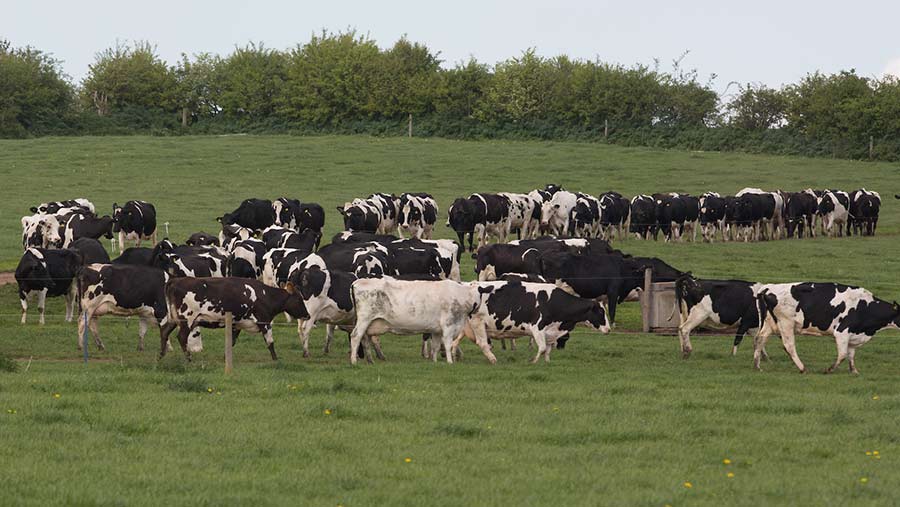Rise in global demand good news for UK dairy exports
 © Tim Scrivener
© Tim Scrivener The UK is in a strong position to benefit from the rising global demand for dairy products since its departure from the EU, according to new analysis.
The Kite Consulting report Opportunities ahead: Why the UK dairy industry can prosper from increased export demand – commissioned by National Milk Records, Arla and Dairy UK – says this is because of the UK’s high animal welfare, commitment to addressing climate change and independence from the regulation-heavy EU.
These factors combined with the forecast increasing demand, in particular from Asia, Africa, Central and Latin America, suggest an increase in opportunities for the UK dairy sector over the next few years.
See also: How has the UK’s exit from the EU affected trade so far?
Increasing imports
Despite facing multiple struggles, such as vegan lobbyists, sellers of alternative products, and concerns about its impact on climate change, the dairy industry continues to grow.
Dairy consumption remains stable or slowly rising in most Western countries, while global demand increases by about 2% a year, the equivalent of about 18bn kilograms of milk.
Kite’s analysis of 90 dairy-importing countries, using historic correlations, shows global dairy demand to 2025 is likely to increase annually by 3bn kilograms of liquid milk equivalents (LME).
This will require a 28% increase in imports compared with 2019, with 37% of the 90 countries’ demand – equivalent to about 17bn kilograms of milk – to be met by imports.
The growth opportunity for an efficient dairy-producing country like the UK – which produces milk with a carbon footprint half of the global average – is, therefore, enormous, according to the report.
Environmental focus
Since the UK left the EU in January 2021, the country’s dairy exports to the EU-27 have fallen – as have imports from the EU, though to a lesser extent.
Meanwhile, the main European dairy exporting countries, as well as the major dairy exporter New Zealand, will see an increase in regulatory pressures, not least through environmental pressures.
The EU has passed a law (The Green Deal: Fit for 55) that means its member states must cut greenhouse gas emissions by 55% by 2030 compared with 1990, which will affect livestock farmers.
This suggests that these countries’ dairy output for third-country exports – where the greatest demand lies – may decline towards 2030, providing more opportunities for the UK, says the report.
In addition, more developed countries increasingly pursue higher value imports like cheese, which could be another key option for the UK with its cheese-making heritage.
The report concludes there are significant opportunities ahead for countries, like the UK, that have a good track record with animal welfare and traceability, and are actively working to address environmental concerns around dairy production, as long as innovation is allowed around these areas.
This will require innovation in the processing sector to enable UK producers to access growth export markets, and it will require political support for the UK dairy industry as it transforms and adapts towards a high welfare, net-zero and nature-friendly future.
